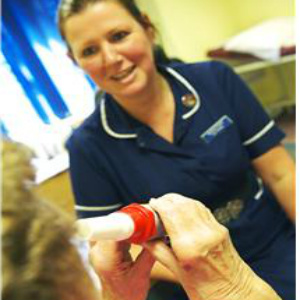Respiratory experts have set out revised ‘gold-standard’ guidelines contradicting NICE experts on how best to diagnose asthma, potentially leaving GPs with conflicting sets of advice.
In a draft revision of their asthma guidelines, the British Thoracic Society (BTS) and Scottish Intercollegiate Network (SIGN) have stuck with their previous advice, which allows GPs the option to base a diagnosis on a trial of treatment in patients with suspected asthma
This has effectively snubbed NICE plans to make sure GPs only make a diagnosis of asthma following a battery of objective tests.
GP asthma experts involved in BTS/SIGN told Pulse their guidelines were deliberately intended to be more ‘pragmatic’ and ‘practical’ than the NICE guidelines.
However, NICE insisted the two sets of guidelines did not differ ‘substantially’.
BTS/SIGN guidelines advisor Dr Hilary Pinnock, a practising GP and academic at the University of Edinburgh, told Pulse the revised version builds on its existing guidelines that recommended that a positive response to a trial of therapy is enough for GPs to make a diagnosis for patients at high risk – provided they record their reasoning.
Asked about the disparity with NICE regarding trials of therapy, Dr Pinnock said the BTS/SIGN guidance ‘is intended to be more pragmatic, and in an area with a limited evidence base aims to provide a practical approach for clinicians’.
She added that the BTS/SIGN guidelines panel had not only reviewed the data on specific tests, but also taken into account ‘pragmatic studies that evaluated tests and algorithms in clinical practice’.
The guidelines updates were mainly aimed at raising GPs’ awareness that ‘asthma is a variable condition’ and that ‘there is no absolute test for confirming or refuting asthma’, Dr Pinnock said.
GP experts said the BTS/SIGN decision raised further questions over NICE’s approach.
Dr Steve Holmes, RCGP lead on respiratory medicine, said NICE had taken ‘a predominantly scientific approach based on – as they clearly highlight – often low or moderate quality research’.
He added: ‘NICE extrapolated to suggest a diagnosis of asthma should not be made in primary care unless we have reversibility spirometry and an elevated FeNO. Whereas the BTS/SIGN draft recognises that there is enormous variation among people in the way their asthma presents and a good clinician balances the science with more of a clinician’s artistic skills and experience to draw the full picture of the patient’s condition and do what is best for the patient.’
Dr Andrew Green, chair of the GPC’s clinical and prescribing subcommittee, said it was ‘refreshing to see the uncertainty GPs are familiar with recognised in official guidance’ and that the recommendations were ‘a welcome balance to some of the more entrenched views that have been aired in the general media recently concerning asthma diagnoses’.
He added that it was ‘quite acceptable for GPs in England and Wales to base their clinical practice on SIGN guidance should they find it useful, for diseases recognise no national boundaries, and no one organisation holds a monopoly on the truth’.
But Dr Kevin Gruffydd-Jones, a GPSI in respiratory medicine in Bath, told Pulse he disagreed with SIGN’s ‘pivotal role’ for a trial of therapy, which he said ‘lacks an evidence base’ and that the ‘discrepancy between the two sets of guidelines needs to be resolved’.
A NICE spokesperson said: ‘We do not believe there is anything in the proposed updates to the BTS-SIGN guideline which substantially contradicts the NICE draft guideline on asthma diagnosis.’
NICE focuses on objective testing

BTS/SIGN guidelines on asthma have up to been widely recognised as the ‘gold standard’ guidelines for GPs to follow.
However, NICE last year set out plans to introduce its own guidelines on diagnosis and monitoring of the condition, claiming that evidence had shown up to a third of patients with asthma may have been misdiagnosed, and advising that GPs would in future have to carry out spirometry and bronchodilator reversibility tests, and in some cases FeNO breath tests, in order to confirm a diagnosis in anyone over the age of five.
However, the plans were heavily criticised by GP leaders who questioned the basis for using certain tests and warned they would force GPs to refer large numbers to specialist clinics. NICE has since taken the unprecedented step of putting the guidelines on hold, until the recommendations have been piloted at practices around the country.

















